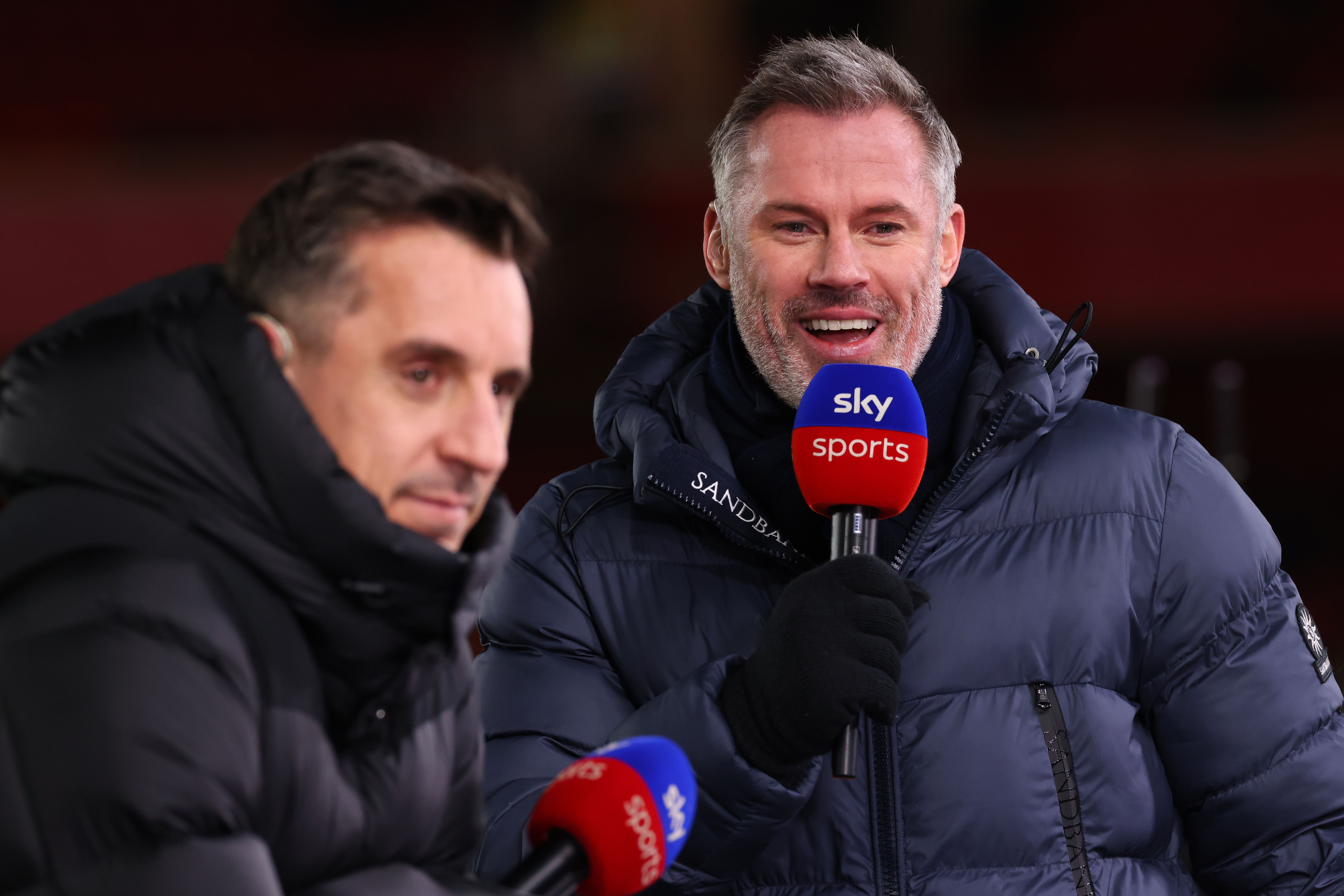Oh dear... The 26 worst football teams EVER
West Ham may be enduring a turgid season so far, but they’re Brazil 1970 compared to this hapless bunch of record-breaking goal shippers and firework-hurling car torchers...
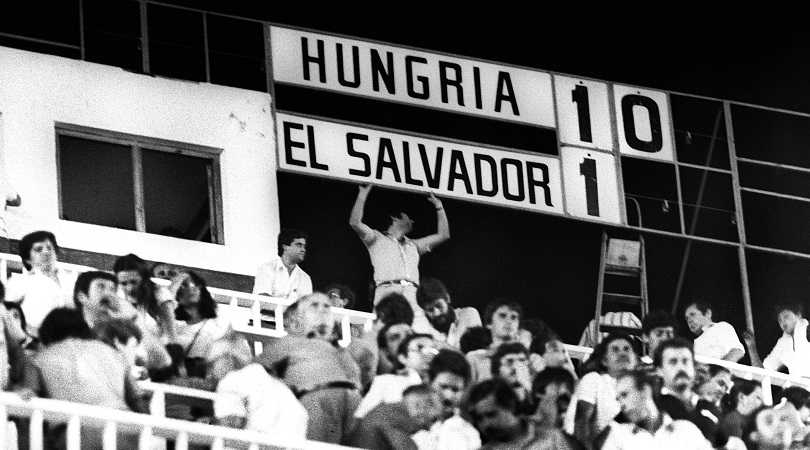
1. The Atom Men bomb
Experiencing the Jasper Carrott gag about Birmingham City (“You lose some and you draw some”) as reality would have been dreamland for Berkshire berks AFC Aldermaston in 2010.
The unfortunate Wessex League Division One outfit couldn’t even manage a stalemate over 40 fixtures between May 2009 and April 2010, until they finally scraped a 1-1 with Warminster Town. During a sickening campaign, they conceded more than 150 goals.
While the team claimed that morale remained pretty high, two key factors had conspired against the side nicknamed The Atom Men: unable to pay players, they’d lost 10 squad members to rivals Tadley that summer, and over a horrible winter their training pitch was decimated.
At least gaffer Adie Heath took things with downbeat good grace. “I didn’t know about the record until last week,” he said. “I suppose it’s given the club a bit of attention.”
2. Not quite Busby or Fergie standard…
Twenty years after moving into Old Trafford, Manchester United’s 1930 vintage were merely a moderately successful northern outfit with two titles and an FA Cup win to their name – as well as two relegations from (and promotions back into) English football’s top tier.
Get FourFourTwo Newsletter
The best features, fun and footballing quizzes, straight to your inbox every week.
Not the powerhouse of post-war England, then, but still – losing all of their opening 12 games was a spectacularly bad show. The slipshod Red Devils shipped 49 goals during their dreadful dozen (starting 3-4, 1-3, 2-6, 0-6, 4-7), and finished the season with 115 goals conceded in dead last. The record remained the most dismal start to a season by a top-flight side in Europe’s big five leagues for nearly nine decades, before finally being broken by Serie A strugglers Benevento in 2017.
United’s final fixture – a 4-4 at home to Middlesbrough – drew just 3,969 souls. Manager Herbert Bamlett somehow kept his job, but was axed the following November.
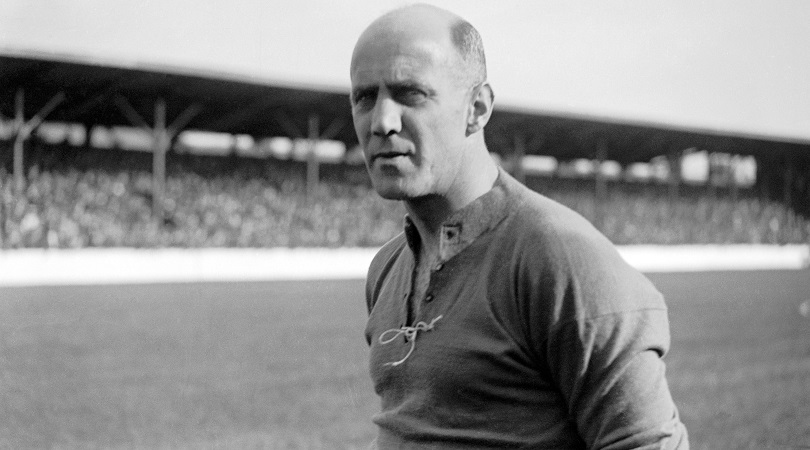
3. “In goal, No.1, Fidel Castro…”
“If this club was a horse, we’d have been taken down the knacker’s yard and sold for dog meat by now,” a fan called Bob told FourFourTwo when we paid a vulture-like visit to Ewen Fields during 2013/14 – and little wonder. Throughout their only term in England’s fifth tier (then the Skrill Premier), the Greater Manchester outfit won just once, drew seven and lost 38, getting relegated with a minus 81 goal difference.
They did so, however, with a magnificent gallows sense of humour: their Twitter feed became a must-follow (“Hyde 2-3 Wrexham. Arses”/ “Hyde 2-4 Wrexham. Bollocks”/ “Hyde 2-5 Wrexham. Can’t win ‘em all”), and they named trialists after left-wing revolutionaries (“Thewlis, Brizell, Fidel Castro, Vladimir Lenin, Karl Marx, Leon Trotsky, Hughes, Maximilien de Robespierre, Thurston, Tony Benn, Tames”).
The trauma of amassing the league’s record point low lingered on, though – they got relegated again the year after.
4. Five days, three matches, 114 goals conceded
The odds were stacked against the Federated States of Micronesia, a country with a tiny population dotted across 607 islands, as they rocked up for the 2015 Pacific Games. The players had never been on an 11-a-side pitch before, and many had only been playing the game for around 18 months.
“Most have never been out their villages, let alone to another island,” said Aussie coach Stan Foster. “I took them to Guam and it was the first time they’ve been on an elevator or escalator. It’s kindergarten.”
At least kindergarten is fun: Micronesia endured three of the most humiliating defeats in football history. They opened up with a 30-0 defeat by Tahiti, whose nine different goalscorers rubbed salt into the wound by performing a haka afterwards (“They beat us and then they made fun of us,” complained player Dominic Gadad). A 38-0 drubbing by Fiji followed, but it was Vanuatu who delivered the killer blow – running out 46-0 winners, with 16 goals for Jean Kaltack. “The marking was a bit slack,” admitted the gaffer.

5. El Salvador floored by Kiss
The Central American minnows weren’t that bad at Spain ‘82 – they only lost 1-0 to Belgium and 2-0 to Argentina in their other meetings – but their opening fixture, 10-1 against Hungary, was a horror show.
Circumstances, alas, had conspired against them. The Salvadorans were the final squad to get to Spain, after a three-day odyssey (“Our itinerary seemed as though it was planned by the enemy,” pondered defender Jaime Rodriguez). Riddled by jetlag, they didn’t even receive any balls to train with until 24 hours before the game was due to start. The exhausted players were also hampered by some unwise tactics.
“They weren’t as bad a team as the result suggests,” said Hungary captain Tibor Nyilasi. “They just went forward naively.” Luis Ramirez Zapata did score, making it 5-1 – and going wild – only for Hungarian sub Laszlo Kiss to fill his boots. “The poor sods probably thought they could beat us,” said Kiss afterwards. It remains the worst shellacking in World Cup history.
6. Remember remember to park in the garage
You know your season’s going awry when the team can’t even have a Christmas dinner without police being summoned to protect players from 100 furious supporters who spat at them, kicked cars and threw fireworks at the restaurant.
That isn’t the only reason Pescara president Daniele Sebastiani will never forget 2016/17 – fans also set two cars alight on his driveway and cherry bombed his house. The discontent was understandable: after the first half of the season, the Dolphins had won one match – Serie A had awarded them a 3-0 victory after Sassuolo fielded an ineligible player – and, despite the sacking of coach Massimo Oddo, things didn’t get much better.
Pescara languished at the bottom of Serie A for 14 weeks, leaked 81 goals and accumulated 18 points on their way to Serie B. Their only away win was that 3-0 victory over Sassuolo, a game they had originally lost 2-1.
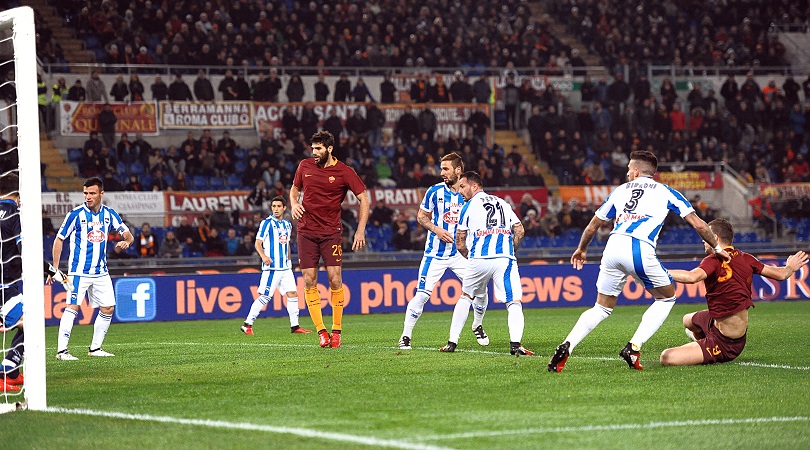
7. “Well, I only conceded 226 goals”
There are two ways to respond to a 10-0 opening-day loss. Stiffen your spine. Or, if you’re Longford in the 2016/17 Gloucestershire Northern Senior League Division Two, back it up with a 13-0 reverse.
Things didn’t improve for the 13th-tier side. By Christmas, Longford had lost every match and racked up 15-0, 16-0 and 17-0 defeats, so they did what anyone would… recruited Stuart Pearce on a one-game deal, 14 years after his last appearance as a player.
The publicity stunt for an insurance company was a minor success, resulting in just a single-goal defeat against Wotton Rovers – their best result of a harrowing campaign: P30; W0, D0, L30; F10, A226.
“I’m one of those people who is never down,” insisted 25-year-old insurance administrator Irshad Badat, the keeper. “I think I’ve played all right this season. I’ve certainly had quite a bit to do.”
8. Darwen fail to evolve
Darwen FC, based just a couple of miles south of Blackburn, were one of northern English football’s pioneers: they were the first English club to sign professional players, reached the semi-finals of the 1880/81 FA Cup, and were Football League members from 1891 to 1899. But that final term (1898/99) in the Second Division was truly calamitous.
After being sued and financially crippled by one of their ex-players, the Salmoners lost on 18 consecutive occasions – and deployed 63 different locals (including a writer from the paper) across the year in a bid to terminate the torture. They succumbed 10-0 three times, and let in a record number of Football League goals (141 over 34 games).
The downward spiral never really ended, either: Darwen failed to win re-election and currently play in North West Counties League First Division North (tier 10).
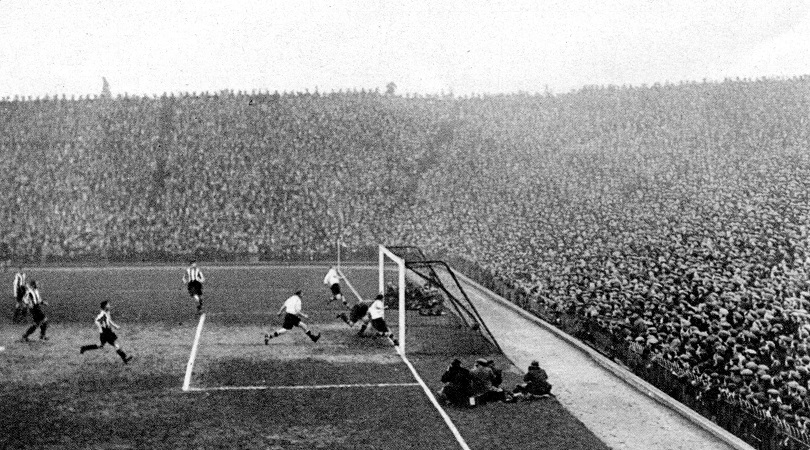
9. Nobody fears The Bash
A 0-0 draw isn’t usually a cue for wild scenes of celebration. The 71 hardy souls at Bashley Road were delirious, however, after ‘The Bash’ picked up their first point in the Southern League Division One South & West after 27 games in February 2016, against Mangotsfield United.
The season hadn’t commenced well for the financially struggling New Forest mob: having not won any match since September 2014, they’d sacked boss David Stride during pre-season, and then axed his successor Steve Riley. “We don’t want to look back in April as this being our only point of the season,” said new Bashley boss Tom Prodomo.
And indeed it wasn’t: they managed to eke out one more point – thanks to another 0-0 against Slimbridge – finishing the year with 40 losses, 201 goals conceded, and a goal difference of minus 188. They are now in the Wessex League.
10. Portuguese pummelling
The sleepy southern Luxembourg town of Dudelange has always been the Grand Duchy’s football powerhouse: Stade won the National Division 10 times between 1939 and 1965, while its successor club F91 Dudelange – formed by a merger in ’91 – has won 14 titles since the turn of the millennium.
However, the big fish from the little pond got themselves a terrible mauling from the sharks of two-time European Cup winners Benfica in 1966. At the Stade Emile Mayrisch, they lost 8-0 with Portuguese midfielder Pedras hitting a hat-trick.
And things were even more traumatising in the return fixture at the Estadio da Luz: Eusebio, in his absolute pomp, scored a hat-trick inside 32 minutes, while fellow Portugal ledge Jose Augusto also helped himself to three. The match ended 10-0. The 18-0 aggregate gubbing remains a record in the competition.
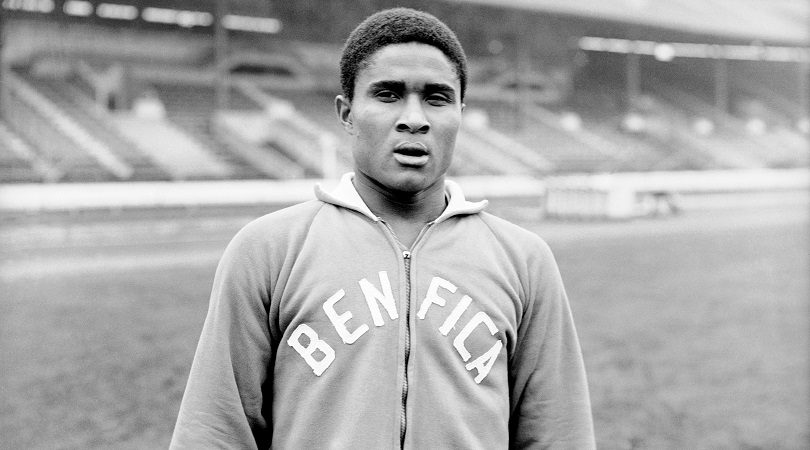
11. Petrie’s dishy finish
Arbroath 36-0 Bon Accord nearly wasn’t a record at all. On September 12, 1885, elsewhere in the opening round of the Scottish Cup, Dundee Harp beat Aberdeen Rovers 37-0.
When Harp’s officials said they’d only recorded 35 goals, the referee realised his error and amended the final score accordingly. Arbroath’s win could have been more emphatic. They had seven goals disallowed for offside and, with no nets in the goals, much time was lost retrieving the ball. Arbroath goalkeeper Jim Milne Sr had so little to do, he stood under a spectator’s umbrella to keep dry.
Arriving without proper kit couldn’t have done much for Bon Accord’s morale and at half-time they were 15-0 down. Teenage Red Lichties winger John Petrie finished the drubbing with 13 goals – a record that stood for 116 years.
12. “And you can bring your dinner!”
When Orient chairman Tony Wood lost most of his money and business interests in Rwanda in 1994, east Londoners Leyton Orient descended into chaos. Youth team boss John Sitton and senior pro Chris Turner took the reins, also taking part in Channel 4 documentary Orient: Club for a Fiver.
The nadir came in February with the O’s trailing 1-0 at half-time against Blackpool. Sitton sacked his captain Terry Howard during the dressing room break and, in full view of the cameras, unloaded on his team. “You, you little c**t,” he began, “and you, you big c**t, when I tell you to do something, do it. We can have a right sort out in here. You can pair up, if you like. And you can bring your f***ing dinner – by the time I’m finished with you, you’ll f***ing need it.”
Orient won one of their following 15 matches, Sitton and Turner were sacked by incoming chairman Barry Hearn and the O’s finished bottom of Division Two. Sitton is now a London taxi driver.
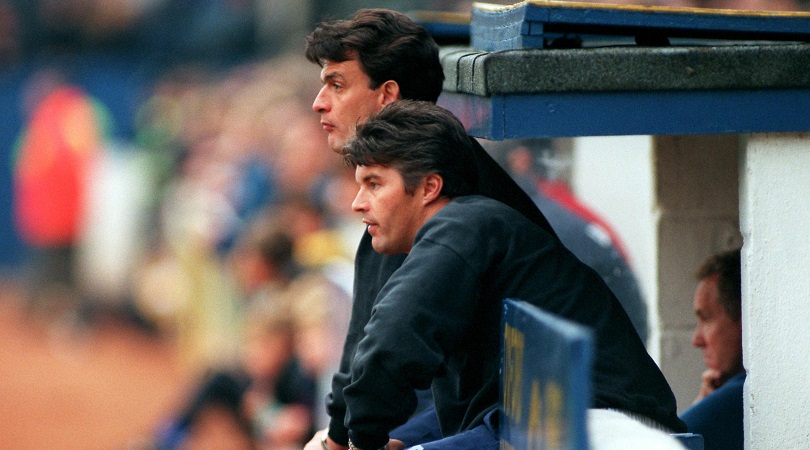
13. Hell for APOEL
Some context: Sporting CP were a truly dazzling team in 1963/64, and defeated Atalanta, Manchester United, Lyon and MTK Budapest (in the final) en route to lifting the European Cup Winners’ Cup. APOEL (short for athletic football club of the Greeks of Nicosia), were Cypriot Cup winners, beating Anorthosis Famagusta in the final.
APOEL had handed out a humiliation of their own in the first round, tonking Norway’s Gjøvik-Lyn 7-0 to become the first Hellenic team to progress in the competition. Their reward? Second round destruction.
Sporting blitzed them 16-1 in Lisbon, with Mascarenhas smashing a double hat-trick: still a record defeat for any side in European action. Unable to host the second leg back at home, APOEL had to play that in Portugal, too – but kept the score down to 2-0.
14. Devilishly bad Tasmanians
In 1965/66, Tasmania Berlin broke all the wrong Bundesliga records: they scored the fewest goals (15), conceded the most goals (108), suffered the worst defeat (9-0 to Meidricher), amassed the fewest points (eight) and recorded the lowest attendance (856).
To be fair, the squad knew they were well out of their depth. Hertha Berlin had been relegated for financial irregularities and, purely for political reasons, the German FA handed Tasmania a promotion to ensure that Berlin was still represented in the top flight.
Players scurried back from holidays when they heard the news. Seeking a leader on the pitch, Tasmania recruited West Germany international midfielder Horst Szymaniak. Unfortunately, all of Szymaniak’s brains were in his feet. After negotiating a share of the club’s gate receipts, he boasted to a Tasmania team-mate: “They tried to fob me off with a third, but I demanded at least a quarter.” Seven years after being comprehensively relegated with two wins from 34 games, Tasmania Berlin went bankrupt.
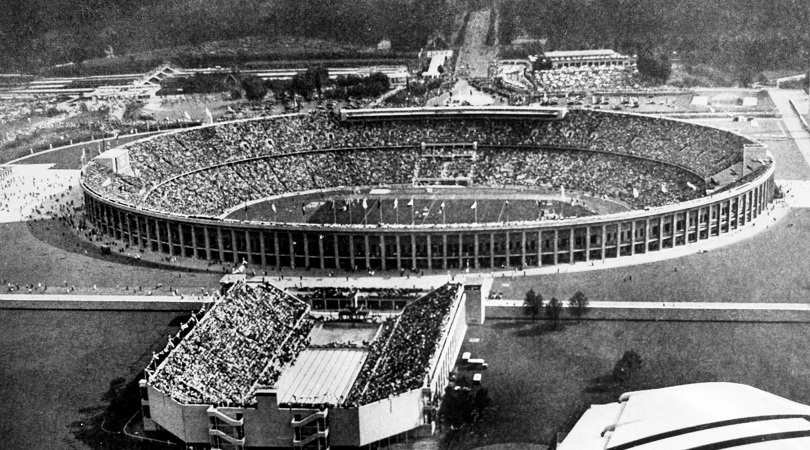
15. Ploy of the Rovers
The last of a Football League record 34 defeats suffered by Doncaster Rovers in this train wreck of a campaign – a 1-0 loss to Colchester on May 2, 1998 – was accompanied by a mock funeral, staged by their protesting fans. Fans wept as a season in which Rovers conceded 113 goals, scored 34, fielded 46 players and earned 20 points ended their 75-year stint in the Football League.
Chairman Ken Richardson was still awaiting trial after paying local criminals to burn the Belle Vue stadium’s main stand to claim on the insurance (he was later jailed). While awaiting trial, Richardson sat on the bench and ‘helped’ to pick the team.
Not entirely coincidentally, Rovers had four managers – Kerry Dixon, Dave Cowling, Danny Bergara and Mark Weaver, whose previous managerial experience amounted to running the Stockport County lottery. Despised by fans, Weaver complained he wasn’t getting the same kind of round-the-clock protection as fatwa victim Salman Rushdie.
16. Consistently crap Croats
There were only two things wrong with Croatian champions Dinamo Zagreb in the 2016/17 Champions League: they couldn’t attack and they couldn’t defend.
Previous defensive offences to be taken into consideration included a 7-1 group stage home defeat against Lyon in December 2011 that was so improbable, UEFA were almost compelled to investigate. In 2016/17, the bare statistics – P6, W0, D0, L6, F0, A15 – don’t really do justice to the comic ineptitude of their defending, the inconsistency of their chocolate-wristed keeper Anders Semper, or the pointlessness of defender Petar Stojanovic’s red card for kicking Sevilla’s Vitolo when his side were only 1-0 down (they eventually lost 4-0).
In six games they hit the bar three times and had three different managers. The rest of the season was almost as shambolic: Dinamo failed to win the Croatian league or cup for the first time in 11 years.
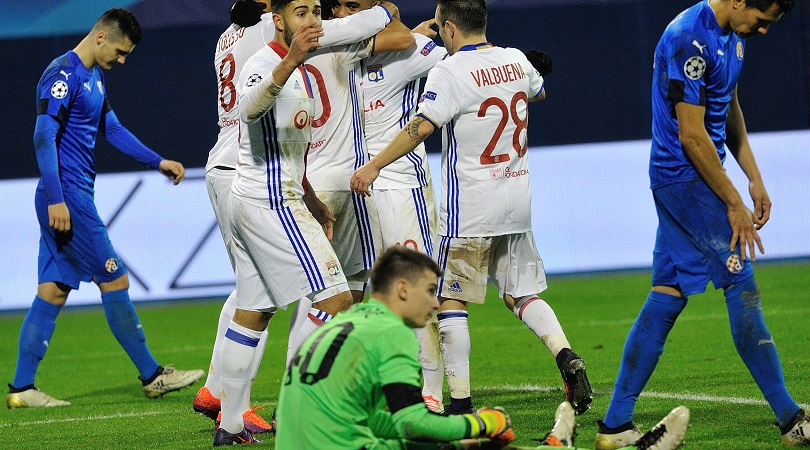
17. Paul Jewell’s video nasty
“This team is not good enough for the Premier League and they know it.” Billy Davies, the manager of newly promoted Derby, was sacked for saying this, but the 2007/08 campaign proved his point.
The Rams won one just match – a 1-0 victory against Newcastle in September – drew eight and lost 29, to pick up a paltry 11 points, the worst tally in Premier League history. Top scorer Kenny Miller managed four goals, while the defence shipped 89. Bookies started paying out bets on the club’s relegation on September 1.
Paul Jewell, who replaced Davies in November, was so infuriated by a 6-1 defeat to Chelsea that he labelled his team a ‘laughing stock’. As, indeed, was Jewell when the News of the World published photos from his sex tapes. Robbie Savage, signed in January window, found the campaign “soul destroying” and admitted: “Players hid because the crowd would have a go at them, me included.”
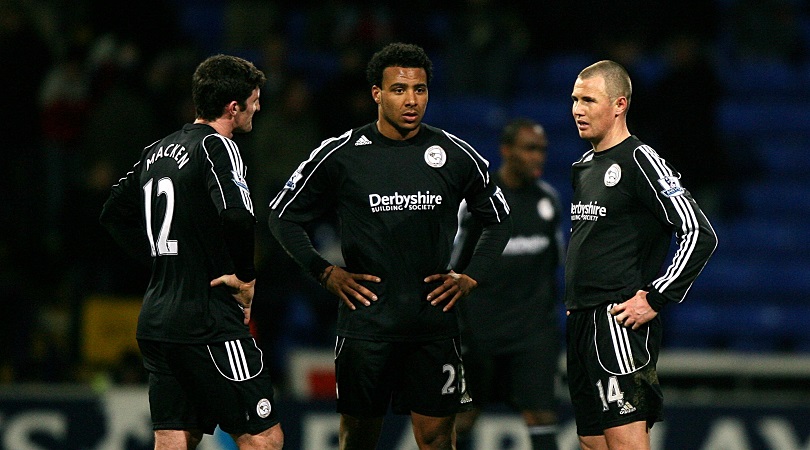
18. More managers than victories
Some seasons are so atrocious that the aftershocks prove fatal. Just five years after being relegated from the Eredivisie with an all-time low of nine points, a record that may never be broken, RBC Roosendaal went bankrupt and had to start over in the Dutch seventh tier. During a 2005/06 season in which they had more managers (Dolf Roks and Robert Maaskant) than wins – just one, a 2-0 win over NEC Nijmegen in February – RBC scored 22 goals and conceded 90.
After beating the drop through the play-offs in 2004/05, replenishing the squad with free transfers and loanees looked complacent. And so it proved, as only three players amassed more than one league goal. Gambian winger Ebrima Sillah top-scored with seven.
The best that can be said for RBC’s players is that they didn’t torture their fans with false hope. After four games, they were 18th – and last – in the Eredivisie, and there they remained until the end of the season.
19. DICKS OUT!
Manager Alan Dicks had guided the Robins to the First Division in 13 years in the Bristol City hot seat, but relegation and a dismal start to life in the second tier meant the boot.
Worse, however, was just around the corner. Not even the arrival of a young Roy Hodgson – initially as assistant manager, then caretaker in January 1982 – could arrest the decline. By ’82, City had suffered three successive relegations, were in Division Four and out of money.
Bankrupt at the beginning of February, the board forced eight senior players to cancel their contracts and keep the club afloat. The Ashton Gate Eight – captain Geoff Merrick, David Rodgers, Peter Aitken, Chris Garland, Trevor Tainton, Jimmy Mann and Julian Marshall – were all hailed as heroes.
“I had a family, three kids and a mortgage,” recalled skipper Merrick. “I think I lost about a stone in weight, it was devastating. None of us wanted to leave, but everybody wanted Bristol City to remain.”
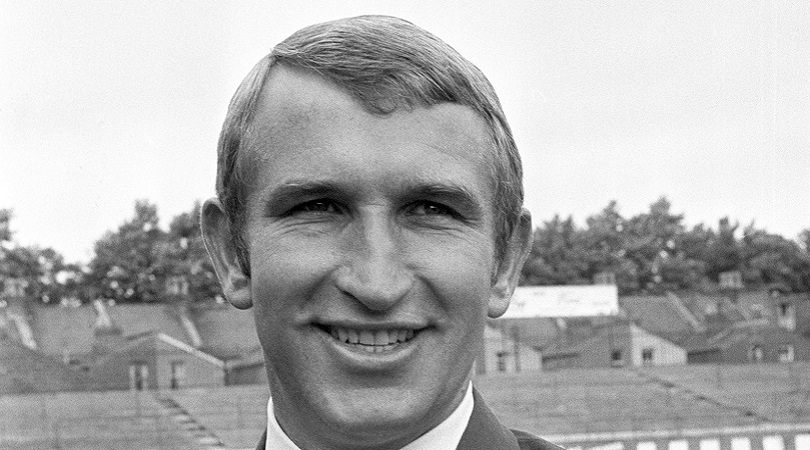
20. The team who hated winning
For three glorious years and 11 months during the early-1980s, the self-styled ‘worst club in the world’ failed to win a single game in the bottom division of Brazil’s Pernambuco state championship. To say that Ibis Sport revelled in their self-appointed moniker would be an understatement.
“We used to lose matches all the time: 5-0, 6-0 and 7-0,” laughed hairdresser-cum-Maradona impersonator Mauro Shampoo, the club’s No.10 and best player, who scored once in those four years.
When Ibis Sport actually started winning in September last year – president Ozir Junior’s dream is for the club to win promotion to the state’s top flight – Shampoo believed the club’s identity was at stake. “If we keep winning,” he said after a third successive victory, “we’re going to lose our brand.”
Supporter Nilsinho Filho agreed: “Even if we go on to win the Brazilian championship one day, no one will ever be able to take our title as the worst team in the world.” And who wouldn’t want that on their football CV?
21. If you can’t laugh at yourself…
When the final whistle blew on the most one-sided qualifying match in World Cup history, on April 11, 2001, some members of the losing team, American Samoa, were laughing with embarrassment. As Australian forward Archie Thompson, who scored 13 goals in his side’s 31-0 victory, said: “There wasn’t much else they could do.”
To be fair to American Samoa, then ranked the 203rd best team in the world, they were deprived of 19 first-team players following FIFA’s insistence that the squad had US passports. Most of their U20 internationals were busy doing exams and some of the players who ran onto the pitch in Coffs Harbour, New South Wales, had never even played a 90-minute match.
Rangers’ Dutch manager Dick Advocaat thought the Socceroos had been too hard on their lowly opponents – when Craig Moore and Tony Vidmar returned to Ibrox, he decided to drop them for one match for unsportsmanlike behaviour.
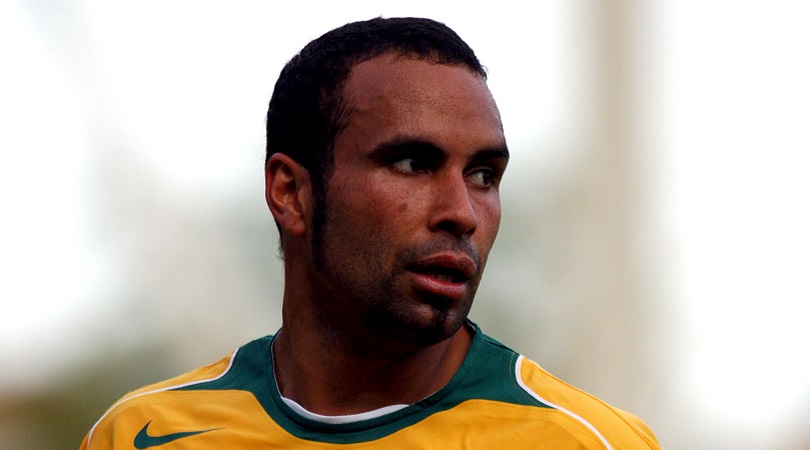
22. Indonesia’s pointless boat trip
Made up from a mixture of Dutch occupiers and Indonesian locals, the Dutch East Indies spent several weeks on a boat to France, devising strategies, training on deck and even playing the odd practice match en route and on board.
The first Asian country to appear at a World Cup could be forgiven for wishing they hadn’t bothered. Four-nil down after half an hour against eventual runners-up Hungary, they were stuffed 6-0. The 1938 finals was a straight knockout event and it remains Indonesia’s only World Cup fixture, making them, statistically, the worst team to ever appear at the tournament (hey, their average scoreline is a 6-0 defeat).
“The team lost, but not because of a lack of skills, enthusiasm or technique,” wrote the newspaper Het Vaderland. “The Indian players, especially compared to the firm Hungarians, are too small and light.”
They also brought with them a contender for the most terrifying mascot in football history. Accompanying the players onto the pitch, the bonnet-wearing, waving porcelain doll is exactly the sort of crazy wide-eyed critter that goes on a killing rampage around a hitherto nondescript American town in a B-horror movie.
23. “Lads, we only need 72 in the second half”
Goal difference is important when you’re chasing promotion. Plateau United Feeders were 5-0 up at half-time against Akruba, but decided they needed a few more goals to help their cause to progress up the Nigerian football pyramid.
And they did just that, scoring 72 second-half strikes without reply to win 79-0. Feeders’ only problem was that, on the other side of the country, promotion-chasing rivals Police Machine hit 61 second-half goals past Babayaro in a 67-0 destruction. Despite hitting four goals in one minute, Machine lost out to Feeders on goal difference.
The Nigerian FA, smelling the fattest of rats, described the events as “a mind-boggling show of shame” and launched an investigation into “this despicable matter”. Two weeks later all four clubs, the players and officials were handed 10-year bans from football. Akurba, mainly for being crap anyway.
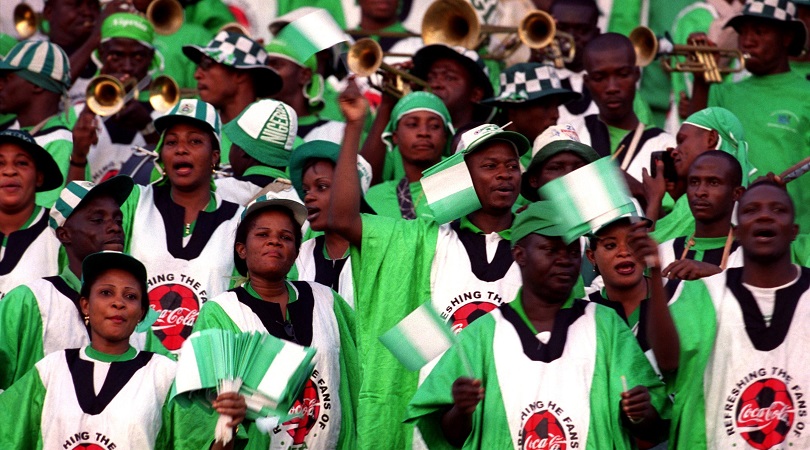
24. A sexless Derby
It takes a truly dreadful season to challenge Derby’s 2007/08 Premier League vintage – complete with as many victories (one) as managerial sex tapes – but Loughborough pulled it off more than 100 years earlier in English football’s definitive annus horribilis.
In finishing bottom of the Second Division, then the lowest tier of professional football, they conceded 100 goals in 34 games, winning just once and securing eight points from a possible 68. The nadir came with a 12-0 defeat at Woolwich Arsenal, who paid Loughborough’s seven players’ travelling expenses, so cash-strapped were the visitors.
Loughborough applied for re-election to the Football League but it was rejected, so they attempted to return to the Midland League for the 1900/01 season. They failed to turn up for a fixtures meeting on June 9 and were declared defunct two weeks later. At least they went out on a high.
25. Brechin bad
If winning becomes a habit, losing takes root deeper than Japanese knotweed. Just ask Brechin City, who went through the entire Scottish Championship without a single victory.
Promoted the previous campaign, Brechin began and ended 2017/18 with 4-1 and 5-1 thumpings to Queen of the South, 26 points adrift of safety. In between came four draws, 32 defeats and four points from a possible 108, becoming the first Scottish club in 126 years to go an entire season without a win.
“I just keep smiling,” said 89-year-old fan Margaret Noble. “You’ve got to. I live on my own, my daughter is in America and my son is in Dorset. Brechin City is my family.”
Manager Darren Dodds has even kept his job. “We’ve never seen the heads go down,” stated chairman Ken Ferguson. “Darren and his team have done a great job maintaining morale in the dressing room.” Or there’s no one else to take on the job, Ken.
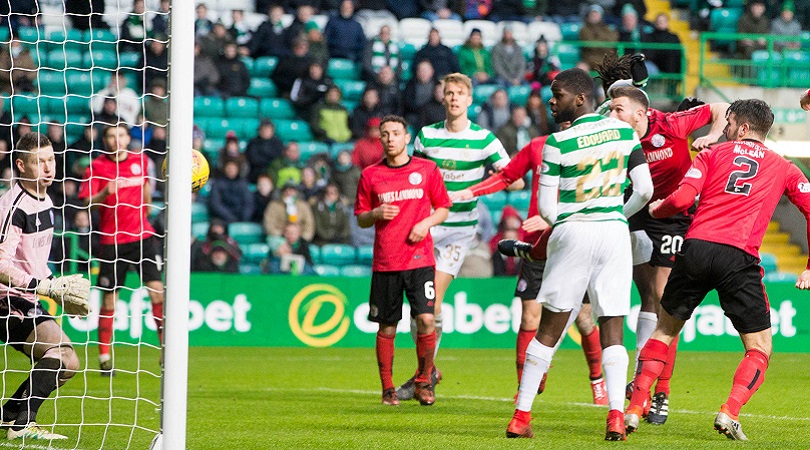
26. P45s all round
Losing 10-0 is never pleasant. But even so, Grenchen sporting director Renato Brun’s decision to publicly fire all 11 players who took part in that match seems excessive. For Grenchen, rock bottom of the fourth division of Swiss football in November 2014, that double-digit loss to Lucerne’s youth team was their ninth successive defeat in a dismal run during which they leaked a whopping 66 goals.
Publishing a list of 11 players who were, in Brun’s words, “no longer welcome” at the club, he accused some of mocking coach Patrick Bosch in training (some pranksters pretended not to recognise him). Defender Dugagjin Dedaj insisted that he and his team-mates were more infuriated by the manner of their dismissal than the decision itself: “This borders on character assassination. If you lose 10-0, you can’t just blame the players.”
That point was proved as Grenchen came bottom of the table with the astonishing record P26, W1, D2, L23, F16, A147.
Joe was the Deputy Editor at FourFourTwo until 2022, having risen through the FFT academy and been on the brand since 2013 in various capacities.
By weekend and frustrating midweek night he is a Leicester City fan, and in 2020 co-wrote the autobiography of former Foxes winger Matt Piper – subsequently listed for both the Telegraph and William Hill Sports Book of the Year awards.


